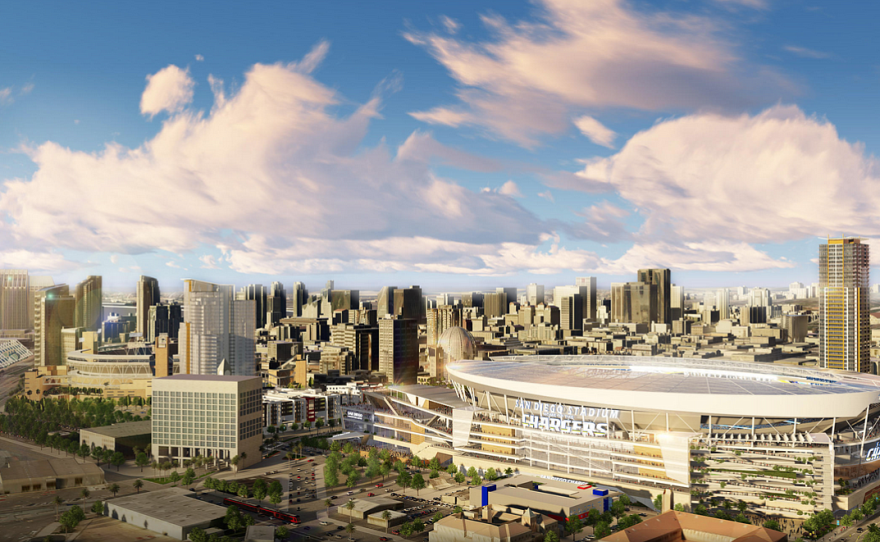The leader of a task force that created a plan to build the Chargers a stadium in Mission Valley endorsed a ballot measure today that would locate such a facility in downtown San Diego.
Adam Day, chairman of the Citizens Stadium Advisory Group formed last year by Mayor Kevin Faulconer, described Measure C on the November ballot as "well crafted" and said it would protect taxpayers.
"I have watched the stadium saga unfold for a long time and have been intimately involved in finding solutions over the past two years," Day said in a statement emailed to reporters. "It's time for San Diegans to come together to support the San Diego Chargers and Measure C."
Because it would increase hotel room taxes, the proposition needs the support of two-thirds of voters. The levy is currently 10.5 percent plus a 2 percent fee for tourism marketing. It would go to 16.5 percent total if the measure is passed.
The Chargers would kick in $650 million of team and National Football League money, and leverage the extra tax revenue to build a stadium and convention center annex.
"No multibillion-dollar infrastructure project is perfect, especially with so many stakeholders and the unique restrictions of state law and competing initiatives," Day said.
"However, this measure is well crafted to protect the taxpayers and requires out-of-town visitors, who come to enjoy all that San Diego has to offer, to pay for the facilities with a user fee," he said. "And it will expand on our efforts to revitalize downtown and inject a well needed boost to our local economy."
The Chargers' plan has also received backing from the San Diego Regional Chamber of Commerce.
Opponents include the San Diego County Taxpayers Association and Councilmen David Alvarez and Chris Cate, who contend the plan doesn't protect the city's general fund in case costs outstrip the tax increase and that the city has other priorities.
The No Downtown Stadium Coalition did not immediately respond to Day's endorsement.
In March 2015, Day's group unanimously recommended locating a new facility next to Qualcomm Stadium in Mission Valley, citing lower costs and fewer complications than downtown. Two months later, they released a financing plan that came up with $1.4 billion in possible funding sources.





